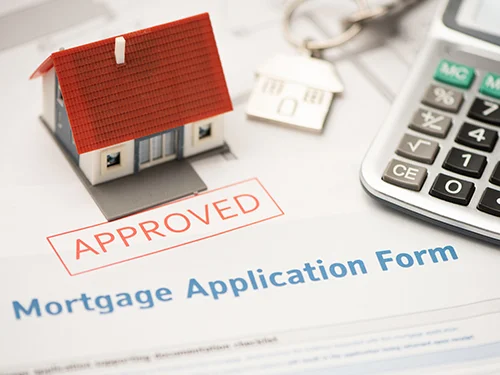What Is Mortgage? How Does It Work?


Your home is the largest asset you will ever own. Thus, getting a mortgage is probably the biggest, longest-term debt you will ever take out. Your ability to choose the best mortgage for you should increase with your understanding of how mortgages operate. Let's dig into our guide that uncovers the answers to what is mortgage and how does mortgage work. Then, reach out to us at Nest Invest so that we can help you find the most suitable home and the most advantageous mortgage loan to make you a homeowner in Turkey.
What Does Mortgage Mean?
The mortgage definition is a kind of loan that is used to buy or keep up a house, land, or other real estate. The borrower consents to repay the lender gradually, usually by making several consistent installments that are split between principal and interest. Then, the asset is used as security to get the loan. The borrower needs to make sure they meet some standards, including minimum credit scores and down payments, and apply for a mortgage through their preferred lender. An extensive underwriting process precedes the closing stage of a mortgage application. The borrower's demands determine different mortgage kinds, such as fixed-rate or conventional loans.
How Does a Mortgage Work?
Now that we've established the mortgage meaning, let's look into how the mortgage system works a little closer. Your lender lends you a certain amount of money to purchase the house when you obtain a mortgage. You commit to repaying the loan over a number of years, interest accrued. The house remains the lender's until the mortgage is paid in full. Fully amortized loans have predetermined payment plans that ensure the loan is settled at the end of the term. A mortgage differs from other loans in that your lender has the right to sell your house to cover its losses if you default. Compare it with the following consequences of not making credit card payments: The items you purchased with the credit card don't need to be returned, but you might have to pay late fees to get your account up to date, in addition to facing the consequences to your credit score.
Advantages of a Mortgage
- You'll become a homeowner: With a mortgage, you can buy a house without paying cash for the entire amount. Few people could afford to buy a house without a mortgage.
- Your credit report might improve: Your credit score rises when your mortgage loan is in good standing on your credit report. Your interest rate on other credit products, such as credit cards and other loans, is set by your credit score.
- Mortgages offer adaptability and discretion: There are a wide variety of mortgage options, so you can usually find one that meets your needs and budget. These consist of the option to have a longer mortgage term to keep repayments lower as well as fixed-rate or variable-rate offers.
- You'll receive long-term stability: If you rent, you usually worry about regular rent increases and annual contract renewals. In contrast, owning a mortgage offers greater long-term stability.
Disadvantages of a Mortgage
- Your house may lose value: Any asset you buy has the potential to depreciate over time. You can have a mortgage balance that is more than the worth of your home if the real estate market declines and your property loses value. This is referred to as being "underwater," and it can force you to pay down the loan sum to sell your house because it exceeds the value of your property.
- Repay more than you took out: You must repay the principal amount plus interest, just like with any loan. Even though mortgage interest rates can be quite cheap (when compared to some loans and credit cards, for instance), you will still have to pay interest throughout the mortgage, which can take up to 30 years.
- If you cannot make the repayments, your home may be in jeopardy: Since a mortgage is backed by the value of your home, it may be repossessed to pay off the debt if your circumstances change and you cannot make the installments.










